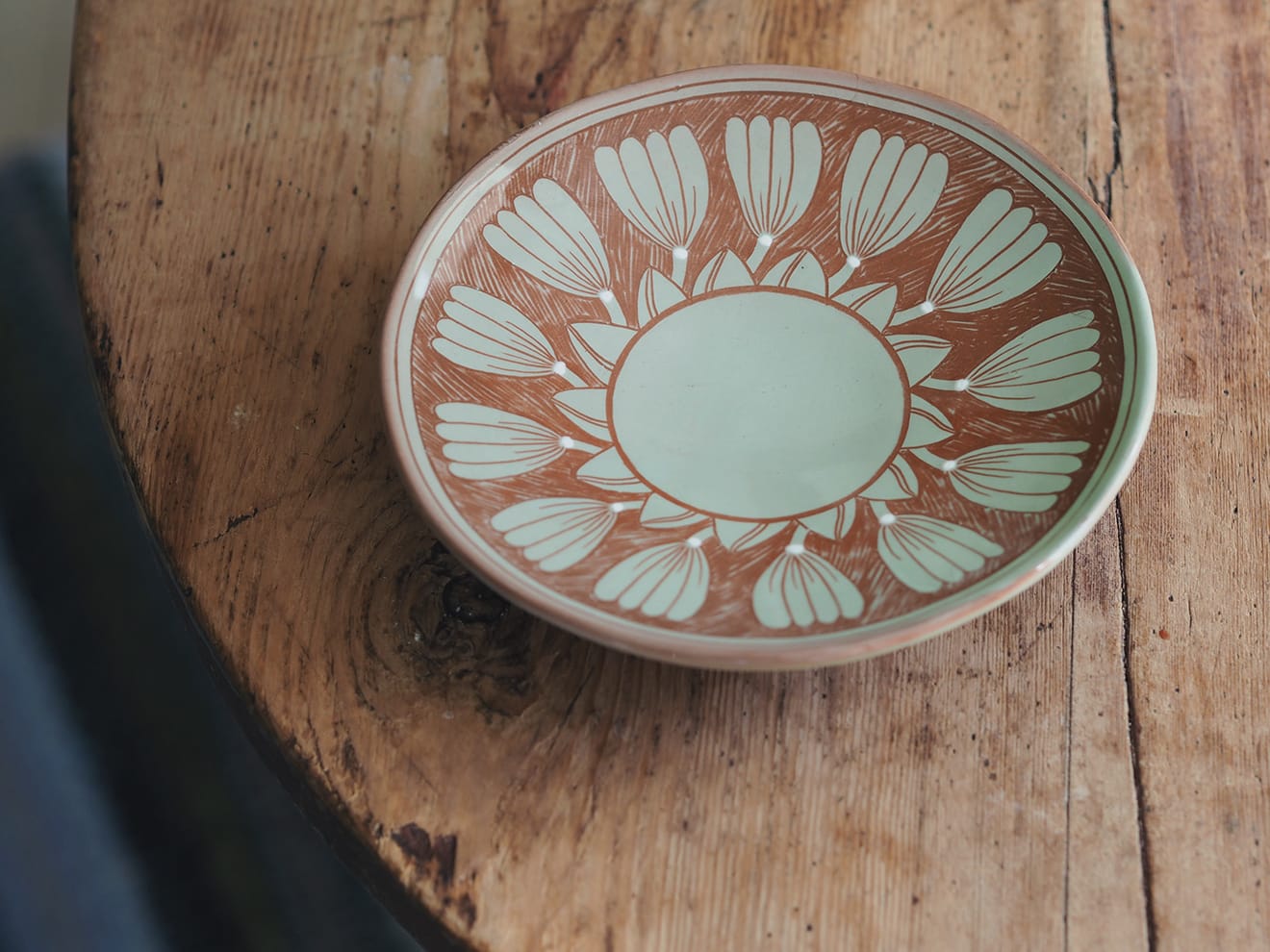ARTEFACT GALLERY #2.3
Maj
Region Värmland - SWEDEN


Technical Specifications
Name
Maj, plate
Tipology
Plate with flower motif
Authorship
Kristine Thenman
Date or period:
2025
Materials:
Earthenware clay, coloured slip and glaze
Techniques:
Slab technique with sgraffito, fired to 1090 degree celsius
Country/ region:
Arvika municipality, Värmland Sweden
Related links:
Ceramicist Kristine Thenman works in the area around Arvika – a place with a strong ceramic tradition, where many artisans have lived and worked over the years. Kristine both follows in the footsteps of traditional utilitarian ware and carves out her own path, blending experimentation with more sculptural and free-form expressions for exhibitions with the production of functional ceramics. These two approaches influence and cross-pollinate each other in terms of form. The plate Maj is an example of Thenman’s interest in stylized floral patterns and nature motifs – themes she often revisits and varies throughout her ceramic work. Each plate is rolled out by hand, shaped, and left to dry partially before the surface is treated using the traditional sgraffito technique, where the pattern is scratched into the clay surface.
Thenman produces around 150 plates in various sizes each year. They are sold both online and in the renowned shop run by Arvika Konsthantverk – a craft cooperative of which she is a member. Many of her customers are based in large cities, but through her work in the store she also gets to meet local customers and visitors face to face.
DETAILS
Thenman also makes sculptural and free-form expressions in her practice
Photo: Hilda Grahnat
Some pieces from the earthenware collection Thenman and Stuart-Beck made together
Photo: Joel Stuart-Beck
Inspiration
Extractions of local clay, Stuart-Beck digging. Photo: Kristine Thenman
Location
Production Details
Kristine Thenman works with earthenware clay, which is a low-fired clay with a distinctive red-brown body – the same type of clay that occurs naturally in the area surrounding Arvika.
For two decades she has worked with a smooth and predictable commercial clay, but she gradually grew more curious about the local clay, which has historically played a central role in Arvika’s development as a ceramic hub.
With the support of a grant from Region Värmland, she and another local ceramicist, Joel Stuart-Beck, began a project in 2023 where they dug up the local clay in order to process it, test the material, and ultimately use it for functional ceramics. Digging, preparing, and creating with the local clay became a meaningful experience for Thenman. Through the process, they gained a tangible understanding of how time-consuming and physically demanding it is to prepare clay for use.
They discovered that the quality of the clay varied depending on location, and at Thenman’s property in Lerhol, they found a clay that had “all the right qualities.” Artistically and environmentally, Thenman sees a bright future for the local clay, even though it remains an economic challenge for now. She hopes to use it in special projects where the material is valued on multiple levels. The project deepened her knowledge of – and love for – earthenware.

